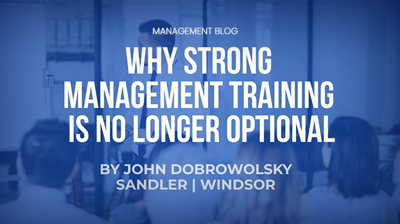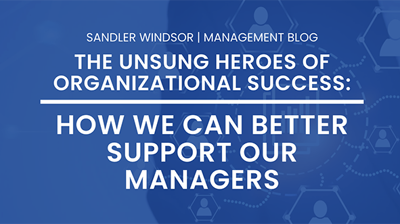As organizations navigate the complexities of the modern business landscape, McKinsey's research serves as a guiding beacon, emphasizing the strategic importance of middle managers. Investing in the development of this crucial leadership tier not only enhances organizational health but also directly contributes to improved financial performance. It's a win-win scenario where top-performing middle managers become catalysts for talent development and valuable contributors to the bottom line.
Let's explore why middle managers matter and how organizations can use their skills to achieve financial success.
The Unrecognized Power of Middle Managers:
Middle management, a role that often involves navigating administrative tasks more than nurturing talent, is revealed to be one of the most pivotal in any company. McKinsey's survey of middle managers exposes the challenges they face and highlights the importance of their contribution. Despite the obstacles, top-performing middle managers are shown to forge strong relationships, translating an organization's vision into reality and playing a vital role in the competition for talent.
Financial Outcomes Linked to Managerial Excellence:
McKinsey's analysis establishes a direct link between strong middle managers and superior financial outcomes. Organizations with top-performing managers outperform others in total shareholder returns (TSR) over a five-year period. This connection emphasizes the considerable financial value at stake and underscores the compelling opportunity for organizations to invest in middle managers.
The Impact of Manager Behaviors:
The research identifies 11 key manager behaviors, including creativity, trust, operational discipline, and talent development. Organizations with top-quartile managers, exhibiting these behaviors more frequently, realize significantly higher TSR compared to others. This insight reinforces the notion that strong middle managers directly contribute to better bottom-line performance.
Consistency Matters:
Beyond individual manager excellence, the study highlights the importance of manager cohesion across business units. Organizations with high manager cohesion boast almost double the organizational-health score compared to those with low cohesion. The synchronized efforts of managers within and across units contribute significantly to organizational success.
Steps to Strengthen Middle-Manager Performance:
Recognizing the strategic importance of middle managers, McKinsey proposes five actionable steps for organizations to enhance their performance:
- Optimize the organization's spans to achieve optimal effectiveness and efficiency.
- Reset manager roles by eliminating bureaucratic tasks and automating rote work.
- Focus on capability building by defining desired behaviors, communicating a vision, and providing upskilling.
- Enhance the middle-manager experience by increasing purpose, fostering inclusion, and offering development opportunities.
- Implement accountability mechanisms through performance management systems, goal-setting, and continuous feedback.
As organizations navigate the complexities of the modern business landscape, McKinsey's research serves as a guiding beacon, emphasizing the strategic importance of middle managers. Investing in the development of this crucial leadership tier not only enhances organizational health but also directly contributes to improved financial performance. It's a win-win scenario where top-performing middle managers become catalysts for talent development and valuable contributors to the bottom line.
Source: This blog post is based on research conducted by McKinsey. For more detailed insights, refer to the original article by Emily Field, Bryan Hancock, Stephanie Smallets, and Brooke Weddle, available on the McKinsey website.
John Dobrowolsky
Sandler trainer






